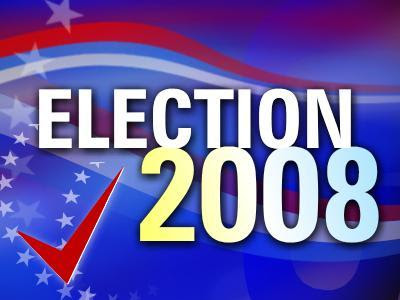
After the Mississippi primary unfolded on Tuesday, Senator Barack Obama increased his lead over Senator Hilary Clinton in the race for the Democratic Presidential nomination in delegate counts by 131 delegates. This win follows his win in the Wyoming Caucuses from last Saturday, giving Senator Obama his second win in a row. Therefore, Obama currently leads Clinton 1,611 to 1,480 in the total delegate count, and the race remains tight between the two candidates, with the next primary a long 38 days away in Pennsylvania.
There are several issues that have come about lately regarding these two campaigns, one of them being a topic I wish to address. This issue involves the inevitable remarks on gender and race that we all knew would appear in this campaign at some point. On Wednesday, Geraldine Ferraro, the Finance committee member of the Clinton campaign, and former Congresswoman, stepped down from the Clinton campaign due to the remarks she made about Senator Barack Obama and criticisms she has received over it. Here is the full letter that was written from Ferraro to Clinton:
Dear Hillary –
I am stepping down from your finance committee so I can speak for myself and you can continue to speak for yourself about what is at stake in this campaign.
The Obama campaign is attacking me to hurt you.
I won't let that happen.
Thank you for everything you have done and continue to do to make this a better world for my children and grandchildren.
You have my deep admiration and respect.
Gerry
According to the Andersen Cooper 360 blog, Ferraro, in an interview with the Daily Breeze of Torrance, California, was trying to defend her earlier remarks from critics. “Any time anybody does anything that in any way pulls this campaign down and says, ‘Let’s address reality and the problems we’re facing in this world,’ you’re accused of being racist, so you have to shut up,” she said. “Racism works in two different directions. I really think they’re attacking me because I’m white. How’s that?” Inevitably we all saw this coming. Remarks and attacks on gender and race in the Presidential campaign that involves a woman and a black man. In Ferraro’s case, I think it is very offensive for her to negate Obama’s success by saying it is simply due to the fact that he is black. Her initial comments included the fact that “Obama is doing well because of his message and a good campaign. But she clearly stated that he’s successful “in large measure” because he’s black.” In the past, we have seen Black nominees run for office and not be successful. This time, Obama is clearly successful thus far. So is it really because he is black? No. It might give him votes (as shown in the recent Mississippi primary where blacks voted for Obama 91 percent to 9 percent) but it is clearly not the ultimate deciding measure of his success. Obama made it this far because of his message, his stances, and his ability to be a leader. We can prove this through the previous wins he has incurred in states that have a white majority population – North Dakota, Washington, Utah, Iowa, Connecticut, and Vermont. Lastly, I respect Senator Hillary Clinton for taking the initiative to respond to Ferraro’s remarks by addressing to the public that her campaign does not endorse or back up Ferraro’s beliefs.
We the people of the United States of America should not be so focused on the issue of gender and race, but of the human being that is running for office. Whether you vote Democrat or Republican in this race, ask yourself these questions about the candidates. Are they capable of leading our country emotionally and physically through the strenuous times that we have endured as a whole over recent years? Will they help us as citizens maintain the liberty and courage we need in this country? If you can answer yes to these questions, then make yourself blind to their gender and their race. Make yourself see what the actual issue of importance is here.
 Stop Loss & The VA System
Stop Loss & The VA System








